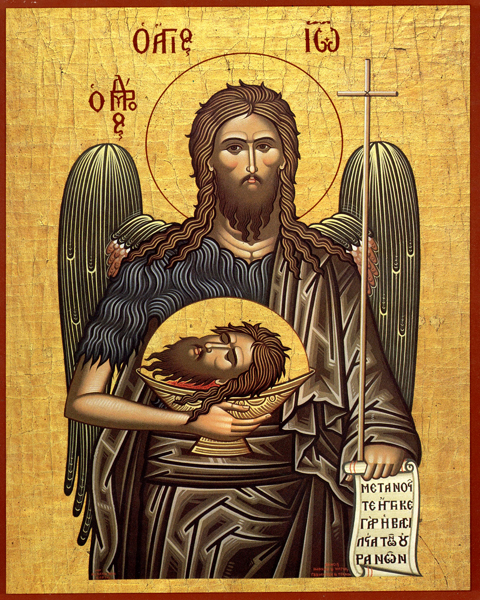Church: Hospital or Hospice? – July 20, 2019
The idea of the Church as a hospital for our souls is nothing new. This was an ideation voiced by Saint John Chrysostom; an idea embodied by Saint Basil the Great; an idea echoed all throughout the writings of the Holy Fathers of our faith:
“For indeed the school of the Church is an admirable surgery – a surgery, not for bodies, but for souls. For it is spiritual, and sets right, not fleshly wounds, but errors of the mind, and of these errors and wounds the medicine is the word.”
~Saint John Chrysostom.
The idea and understanding of the Church as hospital for the soul requires a proper understanding of our humanity, but also a proper understanding of the Church. Christ is the great physician, He who came to heal the sick, the sinner, the ill and infirmed. The Church, as the body of Christ, is by extension the very Hospital of our Great Physician, Jesus Christ. The priests work as her doctors and administers of medicine, the healing salve of confession applied to the wounds of sin which we have inflicted upon ourselves, and the Eucharist as food for the soul. Towards this end, the theology of the Church is a therapeutic science. As the doctor cannot know what remedies to apply to what wounds without proper education and training, neither can the priest do likewise to the myriad spiritual wounds of sin. The Priest or spiritual director is no different in this, in the work of diagnosing those wounds, identifying the illnesses that ail us, so that the priest may apply the correct remedy. One cannot find the wounds and identify the illnesses if he does not know what to look for. The goal is holiness (wholeness) and is the direct result of our having submitted in all humility to a life of repentance, a life to which we are directed by the loving guidance of a spiritual director.
The Church is ultimately a part of the medicine for the whole human being, and is preoccupied with the fate of human beings. A humanity plagued by sinfulness, the passions of the flesh, and destructive behaviors, is an overall abnormal state of existence. The end to which all humans must go to, death, is an unnatural state from the created order, separating body from spirit. Through Christ we are given a way to purification, cleansed of our sins by repentance, confession, baptism, and continued participation in the divine nature of God, but he has also conquered death by death, that in the resurrection we may be reunited soul with body, and return to that state in which we were created, and were always intended to exist.
“Those who are well have no need of a physician, but those who are sick. I came not to call the righteous, but sinners.”
This idea of Church has all but disappeared among much of the various groupings of mainline Christianity. No longer are people healed and prepared for their encounter with God. The Sacraments are gone. The doctors have been evicted. This fleshly sentiment of individuality identity taking precedent over our personhood, over the restoration of our humanity in the image and likeness of God, has all but destroyed the Christian faith. No longer are people conforming to the healing prescriptions of the Church, recognizing that we are wounded; recognizing that we are sick and fallen in our human nature; recognizing that we are all sinners. Instead, people approach God with their open wounds, because “it’s ok, I am forgiven.” Their minds never get beyond the Cross, that Christ died for the sins of all mankind, and never get to the joyousness that lies behind it. The Church has become a courtroom in some respects, a place of worship where people in wait of judgement. In other respects, instead of a hospital, it has become a hospice, where people turn towards the cross and simply wait to die. They are made to feel better through emotional appeals, like an opiate for the terminally ill to ease the pain. They are enraptured by the words they are given, not hearing the words of the Doctors who have gone before them, the Great Physician who died for them:
“Repent, for the kingdom of heaven is at hand.”
~ Matthew 3:2
“Therefore, confess your sins to one another and pray for one another, that you may be healed. The prayer of a righteous person has great power as it is working.”
~ James 5:16
“Whoever believes and is baptized will be saved, but whoever does not believe will be condemned.”
~ Mark 16:17
“Take; this is my body.” And he took a cup, and when he had given thanks he gave it to them, and they all drank of it. And he said to them, “This is my blood of the[a] covenant, which is poured out for many.”
~ Mark 14:22-25
These directives, these prescriptions given to us are not unique to the scriptures, but are echoed through the centuries and millennia of Christians who have gone before us. The Historical witness of the Christian faith paints a very clear picture as to the soul and purpose of the divine-human institution of the Church. Though, one has to enter the doors first before healing can occur.
We must identify those wounds we have inflicted upon ourselves (repent). We just receive the salve of healing, applied to those very would by our confession before God (confession). We are then baptized, cleansed of the stain of this world, by the very waters of creation the lord sanctified for us by virtue of his own baptism in the Jordan. We are then Chrismated to seal the gifts of the Holy Spirit. Properly adorned in the garments of righteousness, we approach the Lord’s table to receive that precious and eternal life giving medicine of the Eucharist.
Much of mainline and consumer Christianity simply tells and teaches us how to die. The pain of our wounds is lessened, but the wounds in many cases are not healed. It is a passivity of faith that accepts there is a cure, but then does nothing to receive it. Yet, the Christian faith is a faith of action, and should tell us how to live. The Church tells us how to live in this life and the next. The entirety of this life should be a preparation for life in the kingdom of heaven, for it is indeed at hand. It is with us now, it is among us, because we as the Church should be living our lives to incarnate Christ into the world. We do not come to Church to prepare to die as a hospice, but we come to Church as a Hospital, that we may be healed and made whole for a life eternal in Jesus Christ.
“Virtues exist in us also by nature, and the soul has affinity with them not by education, but by nature herself. We do not need lessons to hate illness, but by ourselves we repel what afflicts us, the soul has no need of a master to teach us to avoid vice. Now all vice is sickness of soul as virtue is its health.”
~ Saint Basil the Great.
Lord, have mercy upon me, a sinner.




